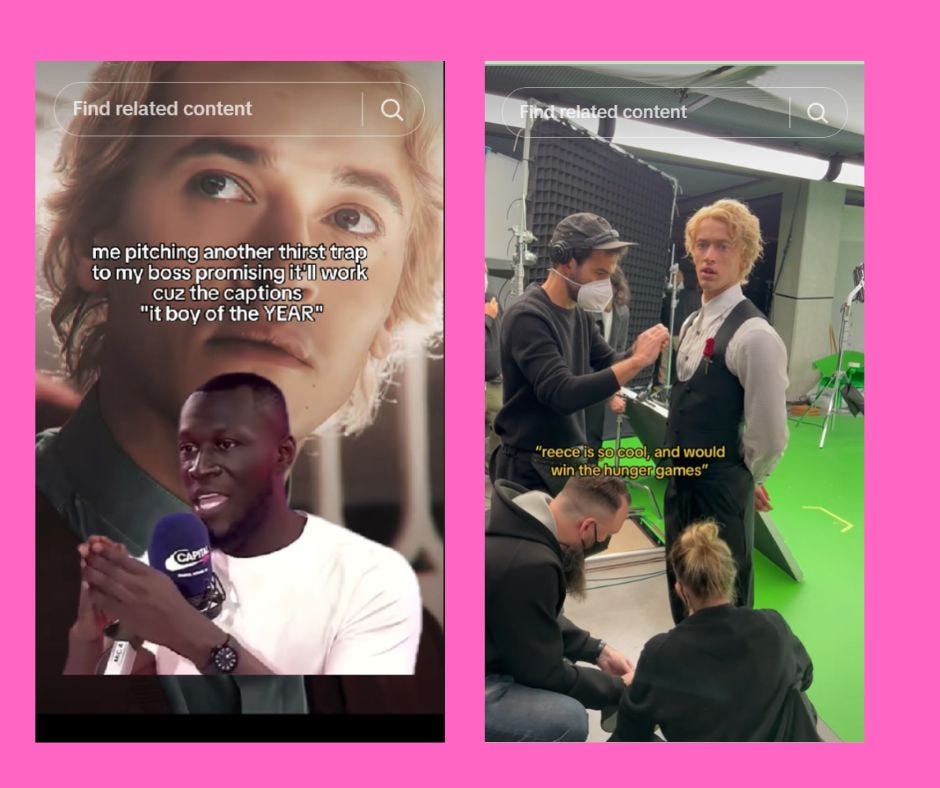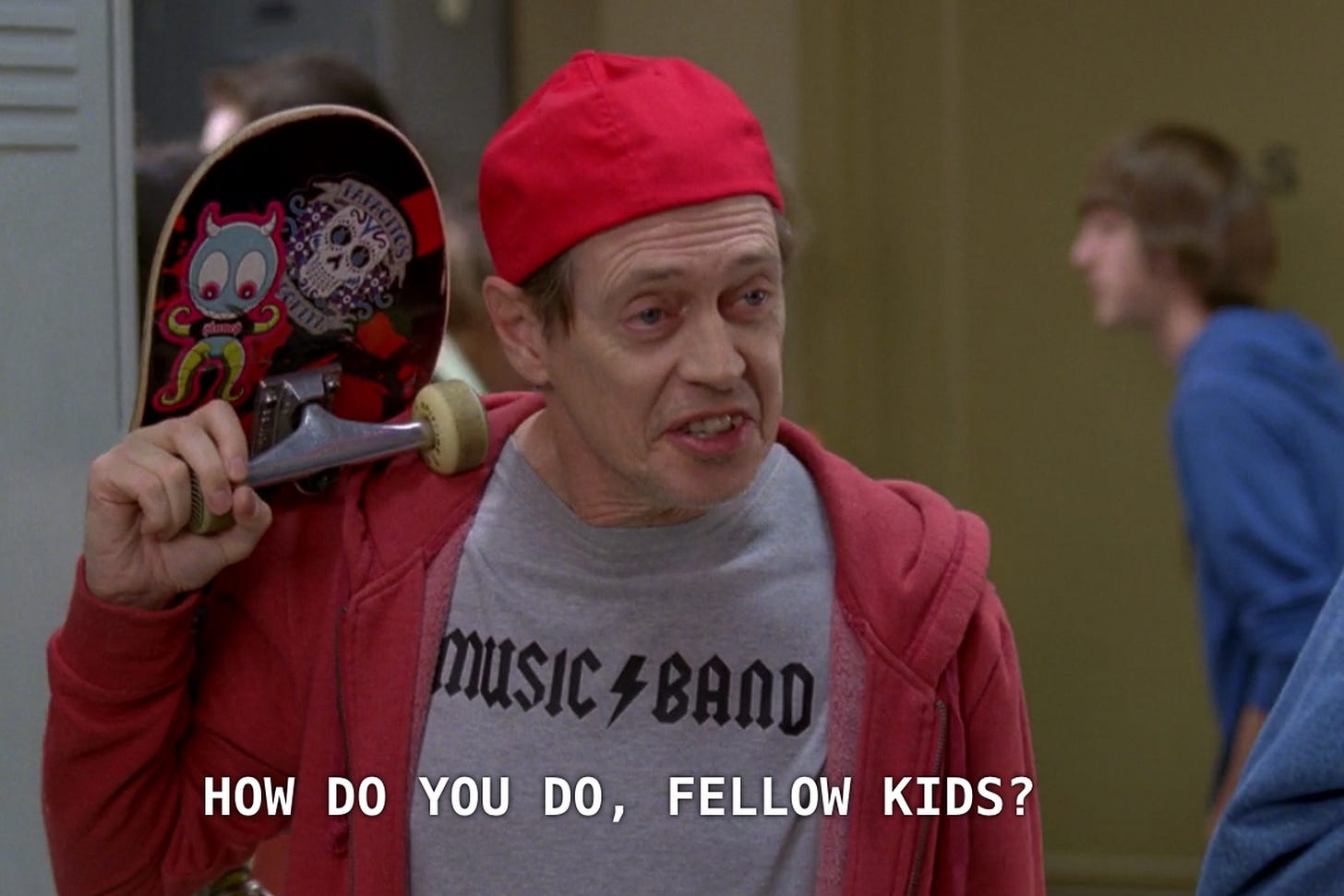How Lionsgate Smashes Digital Marketing for Movie Releases
Plus: The Empire (State Building) Strikes Back, and BBC in trouble for using AI to call The Doctor...
Mini newsletter today as I’ve enjoyed a (MUCH needed) laptop-free, 4-day weekend, but I’m bringing you some juice straight from the Lion’s mouth after listening to a GREAT podcast! 🦁
Eric Dachman is the Executive Director of Digital Marketing at Lionsgate. He oversees a team responsible for marketing half the studio’s film slate (roughly 13-per-year theatrical releases / 40-50 direct to streaming output per year) across social media and online content (the marketing is split across two teams to manage the workload).
Eric recently spoke to the Business of Social podcast and I’ve distilled the main points for you in a handy summary! ⤵️
The Lionsgate Digital Marketing Strategy breakdown:
What to consider when planning a digital marketing strategy for a new film:
Define the audience and where to reach them. E.g. SAW X fans vs Twilight fans: You talk to them differently and they hang out in different online spaces.
With most films Lionsgate covers Facebook, X (Twitter), and Instagram, but increasingly with some films there’s also a dedicated TikTok campaign or even a Reddit strategy - the specific audience always determines the best platforms.
What is the team make-up for releases / post-release / engagement between franchises and re-releases?
Eric has a team of four that works on new releases up until the end of the theatrical window. When the film goes into catalogue, it gets handed to a team of one, whose responsibility is primarily ongoing community engagement with the most dedicated fans to ensure continuous interest.
What’s the biggest difference in the past 10 years in digital marketing for films?
In 2015 everything was Facebook campaign heavy, much less now.
2024 is about connecting with and talking directly with audiences, which is why TikTok has taken off. Knowing the inside joke, speaking your audience’s language, making platform-specific content that resonates with the cultural conversation.
Authenticity is key when communicating with audiences.
What were some things that worked with John Wick or Hunger Games?
Fans LOVED the behind-the-scenes: How it’s made, Keanu’s training, etc. Our TikTok of the stunt team falling down an elevator shaft, which was shot on an iPhone, got over 130 million views. The peak behind the curtain really goes down well.
For Hunger Games, they sent top influencer Reece Feldman (aka Guy With A Movie Camera) to Germany to be on-set for several weeks and shoot BTS content. He embedded in which made the cast more comfortable talking to him and making content with him.
Hunger Games is now a great case study for us to pitch to future filmmakers and get sell-in from above to have a content creator on set.

What’s the difference in strategy between theatrical window and home entertainment window?
Pre- and during the theatrical window, it’s pushing the #FOMO of opening weekend. Leaning heavy on the excitement and brag-factor of being the first to see something. Promoting the emotional, shared experience: Laughing together, crying together, etc.
Then they switch tack when it goes to home entertainment, and its about convenience of watching at home, etc.
How do you approach global vs local US audiences with your digital campaigns? Are there different strategies?
Lionsgate tends to sell the international rights to movies so campaigns outside the US are managed by the distributors in that location.
As the global leaders of the marketing campaigns Lionsgate plans and develops digital packages and strategies in a way that can be sent out and adapted for international markets, working closely with the distribution partners.
How important is an actor’s follower count / influence / social media presence matter when it comes to investing in talent cross-promotion for a movie?
It really makes a REALLY significant impact when the talent also promotes the movie authentically to their followers, especially for original IP.
We pitch a content strategy directly to talent, to get them excited to collaborate with us on content and marketing activities. We make bespoke assets for them, working with them. Authentic is vital here.
We can do some work whilst on set, during downtime or we embed someone on set. But the main strategy for talent comes together after seeing the first cut of the movie so they can build a strategy that really meshes with the entire story and vibe.
Lionsgate has an owned and operated channel strategy, and a separate talent strategy that work together.
Social media is always changing, with major shifts every 8 or so weeks. What are emerging trends Lionsgate is really looking at, or that have driven great results recently?
The platforms tend to favour whatever the new product that they’ve released is, e.g. Reels / TikTok Photo carousels, etc. The algorithm shifts to promote / push this for a while. TikTok slideshows are working well at the moment, like this one for SAW X
How do you sell-in digital marketing, what are the key metrics they care about at the top?
The team’s focus is organic content and fostering a community of engagement, building fans. The important metrics are engagement rate, how are we incentivising conversation.
There is a team that send out constant audience surveys to find out how they discover our films, etc. this way they track awareness, discovery, and intent to see.
How does Lionsgate use content creators?
Partnering with content creators is really helpful, because they have the trust of their peers and can speak directly to a fandom if they are already in it and connected to it.
There are robust content creator and influencer plans for each movie to reach their relevant audiences authentically.
Where does Lionsgate ‘the brand’ sit in the social campaigns, because the film slate is so wide and audiences probably don’t care so much about the studio as they do the films?
Lionsgate social media focuses on the talent they can attract, so don’t really talk about ‘Lionsgate’ the brand, but instead showcase the breadth of talent across they slate, and celebrate that talent to connect with fans and their interests. For example we will do a campaign around key moments in Keanu Reeves’s career, whether even if it’s talking about Matrix, because his fans love him and that can drive interest in John Wick…
How do they prioritise what movies to drive on social? Is it franchises vs standalones?
Every movie is treated like it could be a potential franchise and have growth.
Most common mistakes in film marketing on social media?
Not being authentic. Not speaking the language of your audience or meeting their interests. Trying too hard. Missing the boat on trends and being late / out of touch. No one wants to be this guy:
Brands have to be on it, know the trends, know what’s working and what audiences want and then capitalise on it fast, and in an authentic way. They need to be expert practitioners of that platform.
What’s the social media marketing of the future for film?
Lo-Fi definitely will continue to be strong, raw / lo-fi content, not highly polished, overly refined content.
Speaking on the same level as your audience, not at them.
Speaking in the first person as ‘The Social Media Manager’ (as a character in itself)
Dream scenario as a digital marketing team?
TikTok - we would love to be able to have someone full dedicated. And have someone in-house from Lionsgate to be embedded on set, for every film!
Listen to the FULL PODCAST HERE
News in brief:
The Empire State Building STRIKES BACK, with this EPIC activation and building takeover for the 25th anniversary of The Phantom Menace
OpenAI has begun its OPERATION:SEDUCTION with Hollywood as CEO Sam Altman pitches Sora and other capabilities to the Big Five. I am much terror filled…
Speaking of AI and entertainment, the BBC got into trouble this week following backlash from fans who reported AI-generated content in promotional emails for Doctor Who… this Reddit feed gives you an idea how badly fans reacted!
LOVED this creative marketing campaign to tease an upcoming Carlos Alvaraz Netflix movie using a new media channel to push out to all other media channels.





